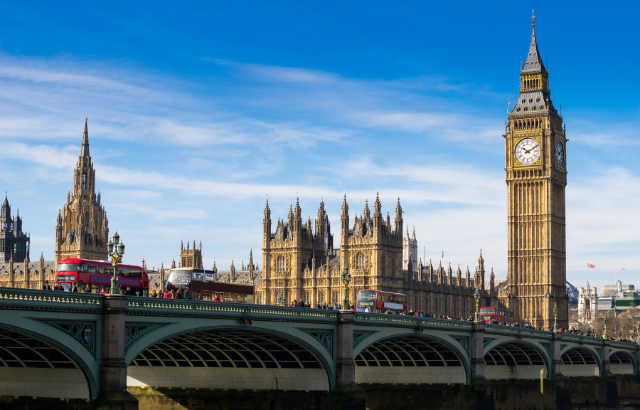Local elections: survey gives Labour huge lead in London ahead of vote
Dr Patrick Diamond, Reader in Public Policy at Queen Mary University of London, has written for The Conversation on the Mile End Institute's polling of the the 2022 local government elections in London.

Large group of Labour Party supporters at an election rally.Credit: tirc83/ IStockphoto.com
Labour is set to decisively win the 2022 local government elections in London, according to the latest survey by the Mile End Institute in partnership with the polling organisation YouGov.
Our poll of 1,232 adults between April 19 and 22 gives Labour a huge 27-point lead, indicating that Thursday could be a very bad night for the Conservatives in the capital. The survey has Labour leading both in inner and outer London, among all social classes, and among white and BAME voters.
Labour is ahead by 57 points among 18-24-year-olds, by 41 points among 25-49-year-olds, and by 21 points among 50-64-year-olds. The only demographic that is less likely to vote Labour than Conservative is the over-65s. The party has been doing less well among pensioners at recent general elections, and that trend continues in this poll of Londoners.
It should be noted that major changes in ward boundaries ahead of these local elections make it difficult to predict what will happen in specific London boroughs, while turnouts in local elections are notoriously low. But our poll certainly suggests that Conservative-controlled councils such as Wandsworth could be vulnerable, even if places such as Westminster still remain out of reach for Labour.
Cost of living hits home
There are indications from our survey that voters who backed the Liberal Democrats in the 2019 general election may also be switching to Labour in order to punish the Conservatives in local battles for control of town halls. The Greens are also doing well, and could out-perform their 2018 score in the capital.
A poor result for the Conservatives across the country, which is also on the cards, would almost certainly result in an attempt by Tory MPs to oust Boris Johnson as prime minister. It must be said, though, that Labour has long dominated in London so the party of government is unlikely to expect good results. For the last 20 years, Labour has generally been performing well in London elections.
Nonetheless, the survey shows that the Conservatives are experiencing unprecedented unpopularity in the capital. This may be the result of short-term factors, such as anger over partygate – the affair that saw government officials gathering in 10 Downing Street during lockdown.
Fears about the rising cost of living do also appear to be at play. According to our poll, a significant number of voters in London are worried about how to heat their homes next winter. There is anxiety about the rising cost of mortgages, increasing food and petrol prices, and – for working parents – the astronomical cost of childcare in the capital. It appears that voters do not believe the government is doing enough to mitigate these pressures on household living standards, for instance by introducing a windfall tax on the profits of privatised energy companies.
On top of that, these voters are feeling the pain of rising taxes this April (including the 1.25 percentage point rise in national insurance contributions to fund extra capacity for the NHS and social care). They are (not surprisingly) angry that people in public life may be legally avoiding taxes. The forthcoming local elections are being fought against the backdrop of the UK having the highest tax burden for more than 50 years.
Longer-term shift?
Yet Tory unpopularity may also be a reflection of a long-term breakdown in the relationship between the Conservative party and voters in London that is indicative of wider trends that are reshaping British politics. Demographically, London is now thought to be a Labour city with a significant concentration of younger, more diverse, liberal voters. These people are often hostile to Brexit and classically left-wing in their attitudes to economic policy and redistribution.
On the other hand, the Conservatives in recent elections have been drawing support from older voters in so-called “red wall” seats in England’s north and midlands. That trend reflects a new pattern of polarisation in UK politics.
Of course, it is important to remember that these elections are for councils and regional bodies. What drives voters’ choices may be less to do with national politics and macro-economic trends than concerns about the quality of the public services and the general physical conditions of their immediate neighbourhoods. The overall level of council tax set by each borough across London is a likely factor, too. National politics is exceptionally febrile at the moment but, as the former speaker of the US House of Representatives, Tip O'Neil, once said: “all politics is local.”
This article first appeared in The Conversation on 3 May.
Related items

10 December 2024

9 December 2024

6 December 2024